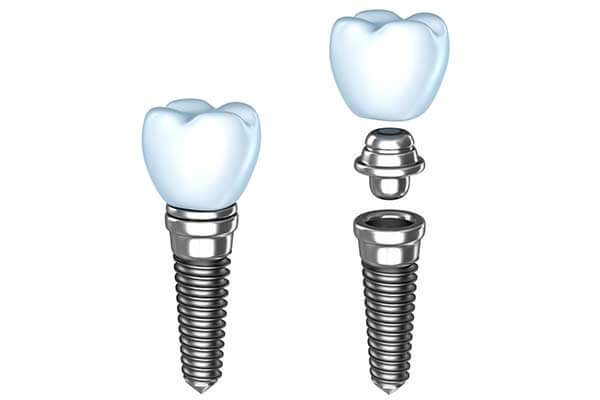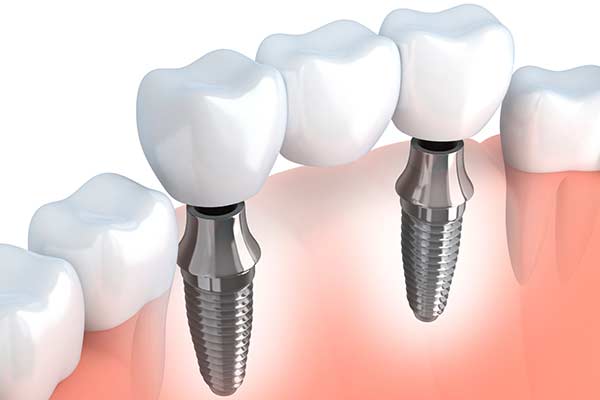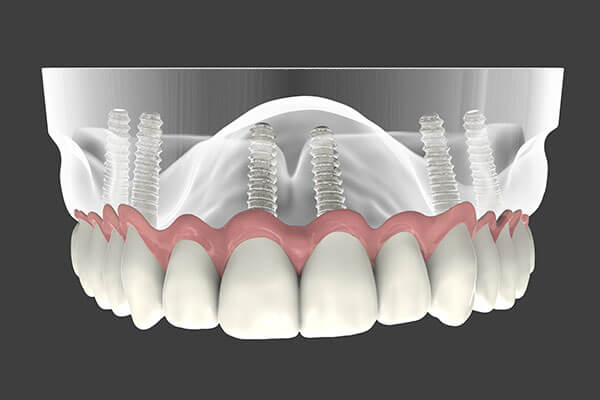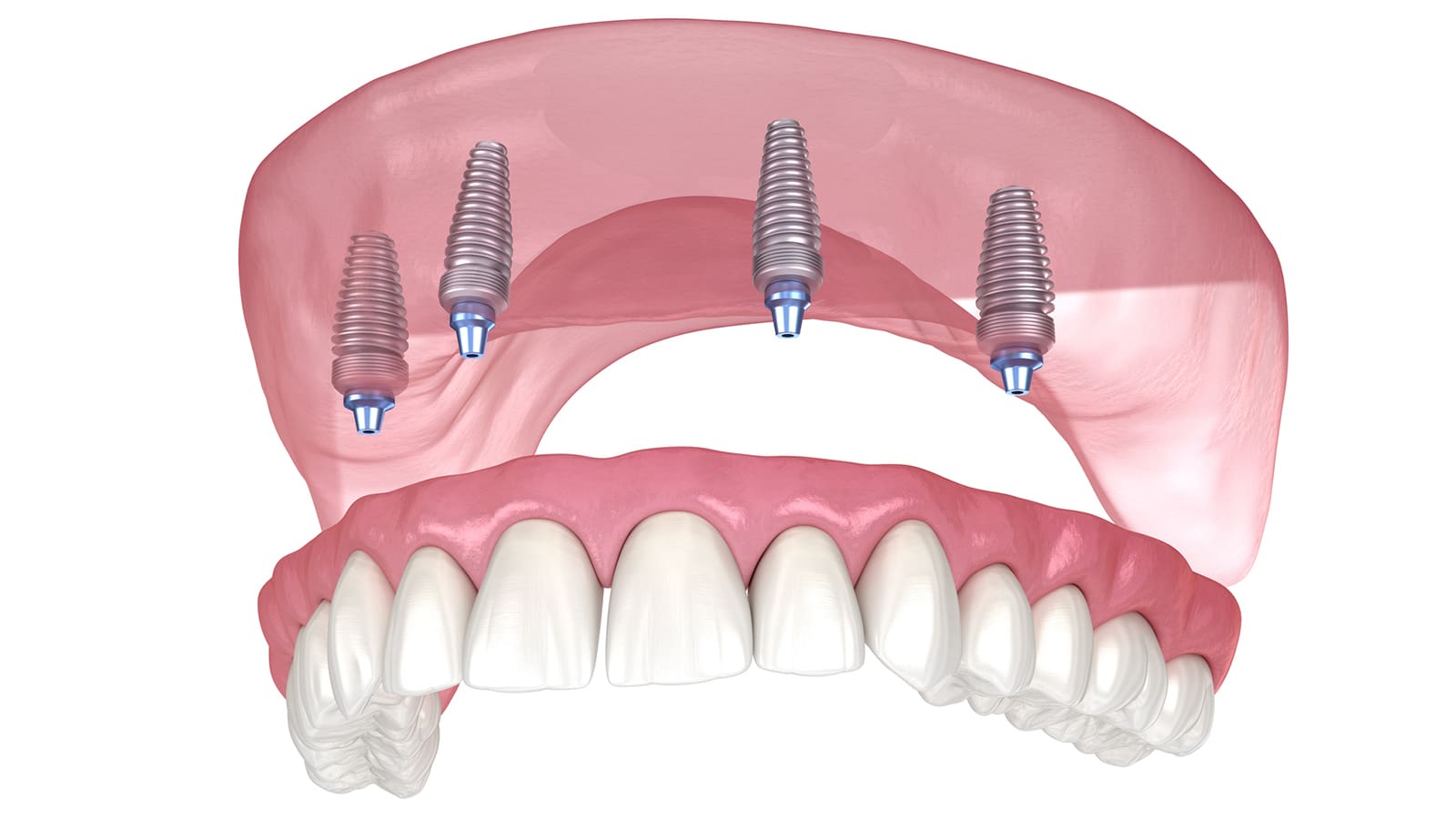Dental Implants in Attleboro, MA
Dental implants are the best option available when it comes to replacing missing teeth. Unlike bridges and dentures, dental implants replace missing teeth both above and below the gumline, which prevents and even reverses bone loss in the jaw. Preserving the integrity of your jaw means a stronger bite, better oral health, and a more youthful appearance.
As a comprehensive dental practice, Attleboro Family Dental Care offers patients the ability to complete the entire dental implant process at our office. Rather than having to go to two or more specialists, our team of dental experts provides a more streamlined experience, working together to provide you the best possible oral health care all under one roof.
Our Advanced Dental Implant Technology
How A High-Tech Digital Dental Practice Can Benefit You
When you choose to get dental implants at Attleboro Family Dental Care, you’ll benefit from the latest in dental technology. Our office uses:
- 3D Imaging to assess whether you’re a good candidate for dental implant surgery. If we determine that there is insufficient bone density to support dental implants, we may use mini dental implants as an alternative or perform a supplemental procedure to augment your jawbone.
- Guided Implant Placement to plan your dental implant surgery. With this technology, we determine the best positions for your implants for optimal results.
Benefits of Dental Implants
Dental Implants Gave Me The Smile That I Needed
I Can Eat Anything Because Of My Dental Implants!
We offer a variety of dental implants in Attleboro, ranging from single-tooth implants to implant-supported dentures that replace an entire arch of missing teeth. Advantages of choosing dental implants include:
- Dental implants are better for your bone structure because they’re implanted directly into the jaw. When the roots of teeth are missing, it sends a signal to the body that the jawbone is no longer needed for support and it begins to break down. Dental implants prevent this from occurring.
- Unlike bridges, dental implants do not require the support of adjacent teeth. When a crown is used as an abutment for a bridge, it compromises a previously healthy tooth structure.
- Dental implants last longer: studies show that dental implants last longer compared with any other fix restoration like crown and bridge as long as you follow the routine home care and follow the necessary protocol. Although the restoration attached to your implant may need to be replaced at some point, the implants themselves are permanent replacements for the roots of your teeth.
- Dental implants are the most natural replacement for teeth. They look, function, and feel just like your real teeth; they don’t slip, they don’t require adhesives, and they’re easy to care for.
How Long Will My
Dental Implants Last
Which Dentist To Choose for Dental Implants
Why Do Dental Implants Sometimes Fail

Single Tooth Dental Implants
Dental implants are small anchors made of a biocompatible metal called titanium that are placed in the jawbone. Dental implants are the replacement of tooth roots in the mouth. Once placed, the anchors begin to fuse with the bone over the course of a few months. After the fusing process, known as osseointegration, abutment posts are inserted into the anchors to allow for the permanent attachment of the replacement teeth.

Implant Supported Bridges
An implant supported bridge is a restorative solution for spaces where three or more adjacent teeth are missing. This restoration typically requires two implants to support the porcelain bridge. The bridge provides a functional and aesthetic replacement for a patient’s natural teeth.
What are the advantages of an implant supported bridge?
Because of the natural look and feel of the porcelain and the functional stability provided by the implants, implant supported bridges are an effective solution to replace multiple missing teeth.
A traditional bridge uses teeth on either side of the gap where teeth are missing for support. An implant supported bridge uses two or more dental implants rather than the adjacent teeth. When a bridge uses natural teeth for attachment, the natural teeth must be prepped for crowns and are then subject to increased stress which may be damaging - particularly if the existing tooth, roots, or surrounding bone structure are already compromised. A dental implant supported bridge replaced your missing teeth and avoids putting any additional stress on your natural teeth.

Implant Supported Dentures
For patients who are missing many or all of their teeth, implant supported dentures may be an alternative to traditional dentures. This solution requires the dental implant placement of two or more implants. In order to replace a full arch denture, a minimum of four implants is generally recommended. Eligibility for this solution is dependent upon a number of factors, with jaw bone density being one of the most significant determining factors.
Traditional dentures rely on an acrylic base that sits directly on the gums, held in place by a paste or adhesive. Using implants as supports for dentures allows for a smaller and more comfortable base and less shifting of the prosthesis during use.
Implants can support both full and partial dentures as well as both fixed and removable dentures. If a removable implant denture is selected, the denture will “snap” on to the implant rather than requiring the use of denture paste or adhesives. Removable dentures can be taken out for cleaning at night.
Why should I consider implant-supported dentures over traditional dentures?
This technique offers many advantages over traditional dentures.
Easy to care for, this solution can simulate the look and feel of natural teeth and stay fixed in place with the implants acting as anchors. Patients will not experience the typical rocking and movement or gum irritation associated with dentures.
Dental implant placement can also help alleviate the sunken look that can occur with bone loss in the jaw by stimulating bone growth in the area around the implant. This process can also help prevent future bone loss.
How to Get Full Arch on 4 Dental Implants for Less
Full Arch with Only Four Implants
This procedure is a unique implant solution that allows patients with a completely edentulous (toothless) upper or lower arch to replace all of the teeth in that arch using only four implants as anchors.

The Benefits & Importance of Dental Implants
Want to know more about why you should choose dental implants?
Learn More About the Benefits of Dental ImplantsFrequently Asked Questions About Dental Implants
How painful is a dental implant?
Dental implant surgery is not painful at all. Before we begin any work, we use local anesthetic injections to numb the area surrounding your tooth to ensure that you won’t feel any pain through the dental implant process. In the hours after your procedure, you may begin to feel some discomfort, but this is typically mild. We will provide you with oral health aftercare instructions to help you manage any pain.
Are dental implants worth it?
Yes, dental implants have many benefits for both your oral health and your overall health that make them well-worth the cost. Our patients are thrilled with the results and are usually surprised by how natural their dental implants feel. Many forget that their dental implants are not their real teeth!
What is the difference between a dental implant and a mini implant?
Mini dental implants have a smaller diameter than traditional dental implants, which means they need less bone mass in the jaw for support. This makes mini dental implants an option for patients who don’t have the bone mass needed to support traditional implants.
Can I get dental implants years after extraction?
It’s never too late to get dental implants. If it’s been some time since your teeth were extracted, you may need supplementary procedures to augment your jawbone prior to dental implant surgery, as bone loss may have occurred. Otherwise, mini dental implants may be a potential solution for you.
If you need dental implants in Attleboro, MA, we can help! Call us at 508-222-2510 to make an appointment.
